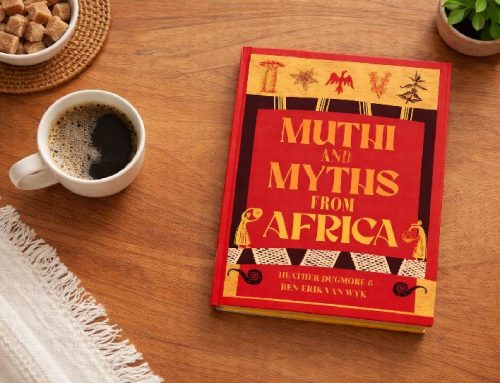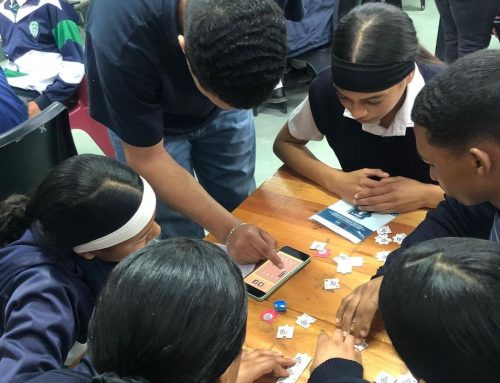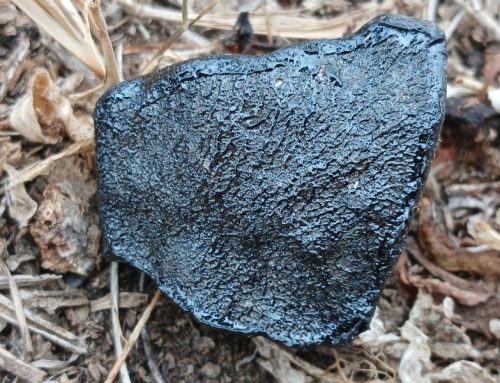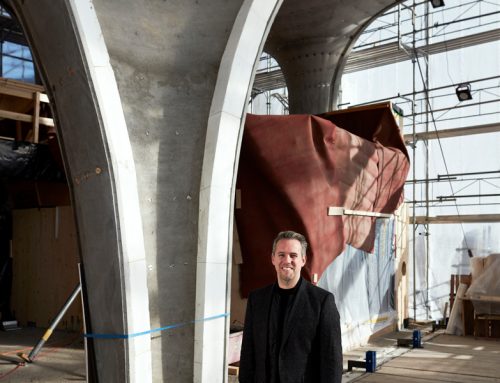“We are close to the edge of social disaster and destroying our planet, but it doesn’t need to be this way. We can create a different future.”
These are the words of biodiversity and global change scientist Dr Phoebe Barnard (MSc 1990) who is the co-founder and former CEO of the USA-based Stable Planet Alliance – a coalition of organisations and experts around the world, dedicated to large-scale social and environmental change.

Dr Phoebe Barnard – biodiversity and global change scientist
She and her husband, filmmaker John Bowey are co-producing a four-part series titled ‘The Climate Restorers’ on climate and ecosystem restoration to enable a positive future. In June they launched Episode 2 in Berkeley, California. https://www.theclimaterestorers.com/

The Climate Restorers
“In the global restoration campaigns I’m working with, thousands of scientists worldwide are collaborating with innovators, activists, traditional leaders, faith leaders, women’s groups, government policy makers and citizens to navigate a path back to a better future – where people and the planet actually matter,” says Phoebe who is featured in the October 2024 issue of WITSREview.
Right-sizing the scale of our human footprint
Overall, she explains, “it is about right-sizing the scale of our human footprint because the Earth’s natural resources are being depleted faster than they can be replaced. Securing a positive future for humanity requires urgent action in three crucial but contentious areas: the dramatic reduction of carbon emissions, removing excess carbon from the atmosphere, and reducing overpopulation and hyperconsumption. At the same time we have to restore our biodiverse ecosystems, including forests, wetlands, grasslands, peatlands and oceans, all of which are essential for our planet and all species to function, and which remove and store 56% of the world’s annual carbon emissions.”
The Stable Planet Alliance website https://www.stableplanetalliance.org/ – lists the range of actions that need to be taken for a better future with regards to energy, pollutants, nature, food, population and economy.
In South Africa and Namibia for 34 years
Phoebe worked in South Africa and Namibia for 34 years. Originally from New England in Massachusetts, USA, she has a BSc Hons in Biology from Acadia University in Canada, an MSc with distinction in Zoology from Wits and a PhD in animal ecology and evolution from Uppsala University in Sweden.
She now lives in Mount Vernon, halfway between Seattle and Vancouver. “We moved back to the USA from Cape Town in 2017, and managed to find a beautiful home here that suits our love of hiking, mountaineering and volcano climbing. It’s a small house leading onto a greenbelt and trail up to a supermarket, coffee shop, bank and pharmacy, so we never really need a car to do basic grocery shopping or other errands.”

John Bowey and Dr Phoebe Barnard, co-producers of ‘The Climate Restorers’ at Katla Jokull ice cave
Hard to leave southern Africa
Phoebe says she found it hard to leave southern Africa: “I’d been privileged to work in the region for over three decades. But working for non-profits, government and academia all this time, I realised the money I was making was becoming less and less in dollar terms at a time when I needed to help provide for our family and ageing parents.”
During her 34 years in South Africa and Namibia, Phoebe was, among other roles, the lead scientist for climate change bioadaptation and biodiversity futures at the South African National Biodiversity Institute (SANBI). She led two joint SANBI / University of Cape Town research teams: one on future scenarios for biodiversity under land use and policy change in Africa, and one on endemic species’ vulnerability to climate and land use change along Africa’s southern biodiversity hotspots. In the 1990s and early 2000s, she founded and led Namibia’s first national programmes on biodiversity and climate change.
From an airport transit to Wits
“I arrived in South Africa in 1983 for what was supposed to be an airport transit on route to Zimbabwe to do research through Oxford University on birds of prey and the uptake of pesticides,” she explains. “I came here with my first husband, ornithologist Dr Rob Simmons, but it turned out there was still too much instability In Zim, so we couldn’t go there and instead stayed in South Africa. This led to both of us going to Wits, me for my Zoology MSc in 1990, supervised by Professor Miles Marcus, and Rob for his PhD. At the same time I helped develop and teach Wits’ first course in Conservation Biology.”
“Wits campus was volatile at the time with frequent protests and police reaction. We had quite a few colleagues taking refuge in academia, and spending additional years on their PhDs to avoid military conscription. The global data scientist Dr Neil Caithness was one of them.”
Phoebe was politically active on campus, though “mindful that I was a foreign student”. She joined social justice, anti-apartheid movements, including the Black Sash, Johannesburg Democratic Action Committee (JODAC) and End Conscription Campaign and still has threadbare t-shirts from the era.
Those little old ladies will teach you a great deal
“I was introduced to the Sash by the late conservation biologist and zoologist, Professor Judith Masters, who was a postdoc at Wits at the time. She said “you’ll be surprised by those little old ladies in the Black Sash. They will teach you a great deal” and they did. I worked closely with many women, including Sheena Duncan and Molly Blackburn, both exceptional women with the most incredible stamina.
“It was a remarkable time and I developed a deep love for South Africa despite my anger and frustration about apartheid and the social and political dysfunction,” Phoebe explains. “I could see the potential, the power and beauty of the country, and I found I was in the right place to contribute to the growing need for climate and biodiversity action.”
Accelerating Nature-based Solutions
Her work for a range of global conservation bodies has since taken her all over the world. “In March this year I was in Zambia helping to run a high-level global action conference titled ‘Accelerating Nature-based Solutions’, with participants from all over Africa and the world.” https://www.acceleratingnbsconference.org/
The goal, as with the Stable Planet Alliance work, is to actively shift economic activities and land restoration from an extractive, exploitative economy and culture to one that heavily invests in climate repair through carbon emission reduction and largescale ecosystem restoration and regeneration. “In addressing the extractive economy we have to address hyperconsumption as well,” she explains, “and the fact that a small percentage of the population is making obscene profits, emitting vast amounts of greenhouse gases through their enterprises, and endangering our climate.
We can no longer ignore overpopulation
“Another huge issue we can no longer ignore is overpopulation,” Phoebe adds. “It is too often perceived as something we can’t talk about, and certain governments totally avoid it, but in Africa with its escalating population, people want to talk about it, women want to talk about it. We have to embed population actions in economic, social and political agendas.
“We have to invest far more in family well-being through health, education and economic policies; support poorer families to advance economically and educationally; protect everyone’s right to life purposes other than parenting; and increase aid for family planning. As part of the Stable Planet Alliance we have a global platform called GirlPlanetEarth www.girlplanet.earth where girls and women tell their stories.”
About wild herbivores and livestock
“Among many other things, we are also working on addressing misinformation and prejudice such as current thinking about wild herbivores and livestock on well-managed rangelands, as opposed to industrial-scale feedlots – the latter contribute significant carbon emissions while the former can positively contribute to ecosystem health and carbon cycling. The world needs to understand that well-managed wild herbivores and livestock are essential to rangeland restoration in Africa’s grasslands. Millions of people also depend on livestock and game farming for their livelihoods.”
She adds that people need to understand that the majority of people in Africa “are not likely to eat tofu”. Through another international network – the Global Evergreening Alliance with their motto ‘Green Up To Cool Down’ – Phoebe is helping to structure their campaign which is addressing sustainable rangeland practices and the need to support subsistence and commercial farmers, especially small-scale farmers, in the transition to farming methods that restore biodiversity and store carbon in soils. The European Commission is funding part of this work which includes global movement-building and media awareness “to bring unity regarding subjects on which people are currently very divided”.
Warning after warning
The Intergovernmental Panel on Climate Change has set a 2030 deadline to reduce heat-trapping carbon emissions by half to avoid climate change that is both irreversible and destructive. “We’ve had warning after warning, supported by thousands of scientists and research studies,” Phoebe says. Her latest article, published in April this year, is on the Earth at risk and the future of humanity. It is co-authored with South African-born, UK-based Professor Sir David King (UK chief scientist to four successive UK governments) and a host of indigenous and western scholars. https://academic.oup.com/pnasnexus/article/3/4/pgae106/7638480
“We now have to get our shit together because if we don’t, we are looking at devastating environmental, civil and economic instability. If we do, we can literally look forward to a world where biodiversity, people and the planet actually matter,” Phoebe concludes.
Other world scientists’ warnings that Phoebe has co-authored or led include:
https://academic.oup.com/bioscience/article/70/1/8/5610806 (2020)
https://www.scientificamerican.com/article/the-climate-emergency-2020-in-review (2021)
https://journals.sagepub.com/doi/10.1177/00368504211056290 (2021)
https://journals.sagepub.com/doi/epub/10.1177/00368504231201372 (2023)




